This ‘matchmaker’ has helped more than 100 patients with serious blood disorders get a second chance at life
Over the past decade, Chandini Selvarajah has helped patients battling leukaemia, lymphoma, myeloma and other serious blood disorders find their life-saving bone marrow donor match. As search and transplant services manager at the Bone Marrow Donor Programme, her work has led to more than 100 successful transplants.
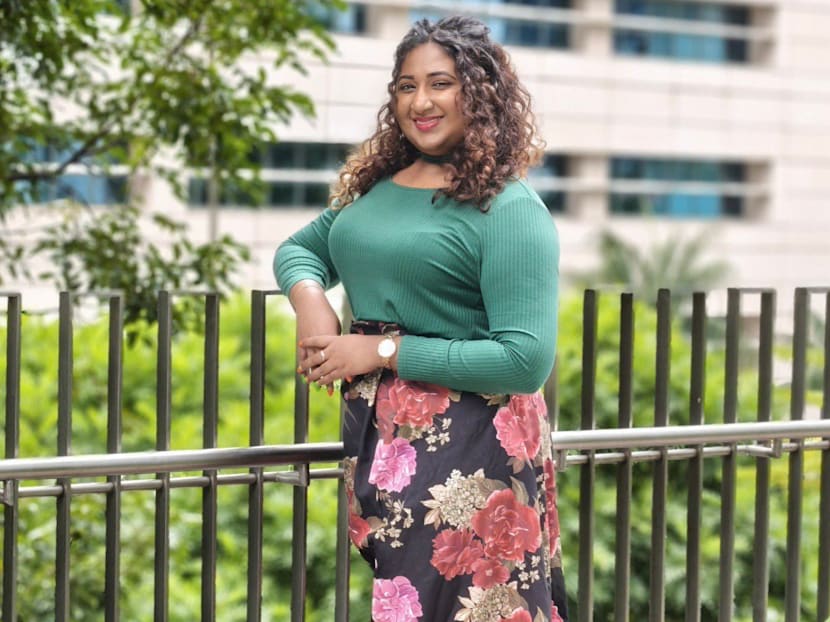
Chandini Selvarajah helps critically ill patients find a bone marrow match among some 126,000 locally registered and 40 million globally registered donors. (Photo: Bone Marrow Donor Programme)

This audio is generated by an AI tool.
You could say Chandini Selvarajah is a matchmaker of sorts. She works as a search and transplant services manager at the Bone Marrow Donor Programme (BMDP), where she and her team tirelessly search for the best bone marrow match for critically ill patients among millions of registered donors worldwide.
Over the past 10 years, the 34-year-old has matched around 1,000 donors and recipients. More than 100 have proceeded with the transplant. As for the other matches, a good number of donors are uncontactable or they don’t go through with the donation for various reasons. Sometimes, the recipient dies before a transplant can take place.
One of Chandini’s matches was Ria Nadira, who had thalassaemia major, a genetic blood condition where the body does not make enough healthy red blood cells. This leads to weakness, dizziness, shortness of breath, and in severe cases, delayed growth, bone deformities and organ damage.
The eight-year-old needed a bone marrow transplant to replace her faulty blood-forming stem cells with healthy ones. In 2020, she received these stem cells from a stranger, Nur Siti Zubaidah, then 22.
The two tearfully met for the first time last year. The meet-up was arranged by Chandini, who had helped to match them.
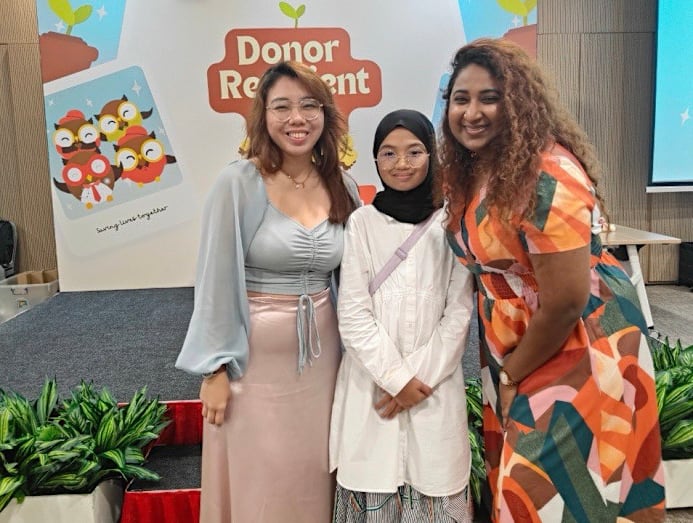
Chandini also helped to match a young boy with a policeman who donated his bone marrow for the transplant in 2021. The boy had transplant-dependent haemoglobin E beta-thalassaemia, a serious genetic blood condition that causes chronic anaemia. Patients need regular blood transfusions and sometimes, a bone marrow transplant to survive.
For two years after the transplant, the pair anonymously exchanged heartfelt cards and presents through BMDP because of donor-recipient confidentiality, until they finally met in 2023.
Both came with their entire families, and despite the difference in age, race and life experiences, it was like a large family reunion, Chandini recalled with a smile.
SAVING LIVES BEHIND THE SCENES
When patients are diagnosed with illnesses like leukaemia, lymphoma, myeloma and other serious blood disorders, this can affect the bone marrow and prevent the body from making healthy blood cells.
Without enough normal blood cells, patients can suffer from severe infections, bleeding, extreme fatigue, and organ failure. In some cases, a bone marrow transplant is necessary to replace the diseased marrow with healthy cells, giving them a chance of recovery or a cure.
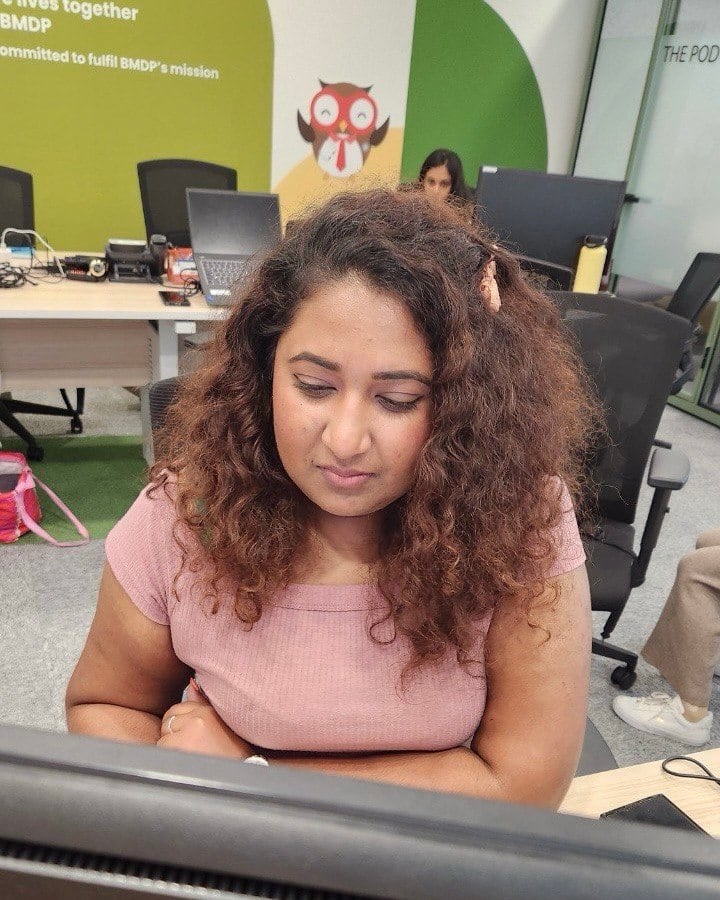
When looking for donors, doctors will consider related donors such as family members if the stem cells are a close enough match. However, if the match is poor, the patient’s body may reject the donor cells, or the donor cells may attack the patient’s body.
More than 70 per cent of patients do not find a suitable related donor and must rely on unrelated donors, said Chandini. In such cases, the hospital sends an urgent search request to Chandini’s team at BMDP, and the clock starts ticking.
Most patients who come to BMDP have serious or life-threatening illnesses and require the transplant within two to four months. For critical cases, sometimes, the timeline for transplant is as short as two months, said Chandini.
Finding a match among a local database of 126,000 registered donors, and a global database of around 40 million is not as simple as typing in patient details and waiting for the algorithm to do its work.
Often, the computer generates from hundreds to more than 1,000 potential matches. Chandini must then manually comb through this list using predictive tools, analysing population genetics, and considering how well a donor’s immune markers and antibodies match the patient’s.
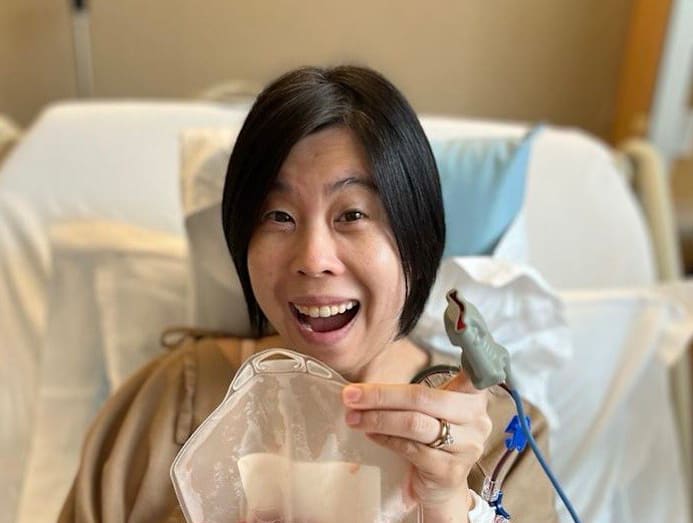
Within five days, Chandini shortlists up to six potential donors. From this shortlist, the doctor identifies the most suitable donor.
Then, another BMDP team contacts the donor to undergo a series of tests and medical checks to confirm eligibility and suitability for the transplant, and oversees the collection of the stem cells.
This entire process takes one to three months and is carried out with utmost urgency because transplant patients are critically ill and their condition can worsen quickly or they may die if they wait too long.
THE BONE MARROW DONATION PROCESS
Information provided by BMDP search and transplant services manager Chandini Selvarajah:
Eligibility: Any healthy adult aged 18 to 49 can register as a bone marrow donor.
Quick sign-up: It takes five minutes to check your eligibility and fill out contact information. A swab kit and registration form will be mailed to you for tissue type matching. You will then be included in the register of potential marrow donors and be contacted if you are found to be a match for a patient.
Most donations are non-surgical: 90 per cent of donors go through the Peripheral Blood Stem Cell (PBSC) collection, a low-risk process similar to blood donation. For four days before collection and on the day of collection, donors will receive injections to stimulate the production of blood stem cells. On donation day, blood is collected from one arm and will pass through a machine that separates out the blood stem cells. All the remaining blood is returned to donors through the other arm. This process takes five to eight hours.
Bone marrow harvest: In about 10 per cent of donations, doctors collect marrow cells directly from the back of the pelvic bone using a special needle under general or local anaesthesia. This method is only chosen if it offers the patient a better outcome.
Common misconceptions: The donation process does not involve extracting bone, is not harmful in the long run, and will not cause infertility.
DELIVERING THE PRICELESS CELLS
The work does not end there. After the stem cells are collected, they must be kept in a special box at a temperature of between 2 and 8°C and hand carried from the collection centre to the patient’s hospital within 48 hours so they do not deteriorate and become unviable for transplant.
BMDP uses professional courier companies to transport the stem cells. But for international donors halfway across the world, flight delays can complicate the delivery.
It is Chandini’s job to ensure that nothing goes wrong. And from the moment the stem cells are collected until they are safely delivered, she does not really sleep. She does this three to four times a month.
“We are in touch with the courier at every step to ensure the stem cells are collected on time, the correct product is collected, there are no flight delays and they are taking the flight as scheduled. Once the courier arrives at transit, we also have to be on the alert to ensure he catches his connecting flight,” she said.
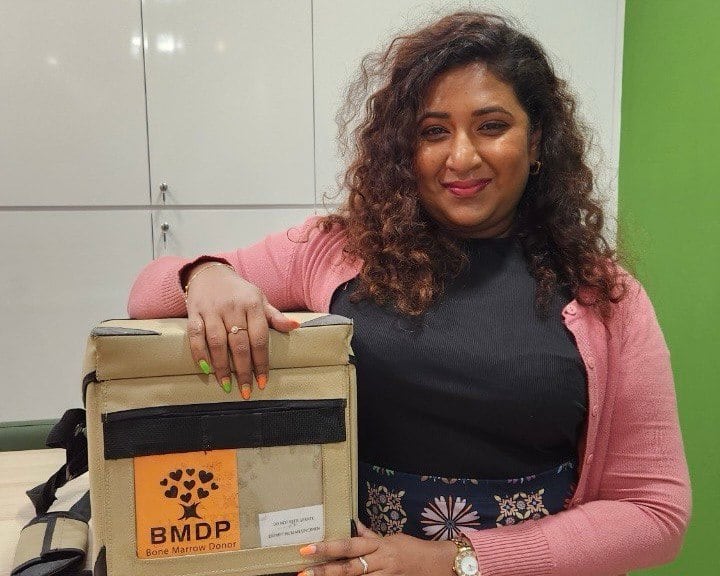
If there are flight delays, she helps the courier switch to the best alternative route immediately and informs the transplant centre of any change in delivery time.
“The stem cell product is priceless and cannot be replaced. More importantly, a patient is depending on it for a second chance at life,” Chandini told CNA Women.
Sometimes, donors also drop out at the last minute, and international registries may contact Chandini in the wee hours because of the time difference.
In such cases, she ensures that the information reaches the transplant centre at the hospital where the patient is, and doctor immediately – no matter the time of day – so that they can activate the back-up donor.
“If the patient has already started their last round of chemotherapy to prepare for the infusion, everything is urgent for the safety of patients and donors,” Chandini explained.
FIGHTING FOR PATIENTS, DAY AND NIGHT
Most of Chandini’s work is done behind the scenes. She did not use to meet many of the patients she helps but in recent years, BMDP has begun to arrange donor-recipient meet-ups for those who are keen.
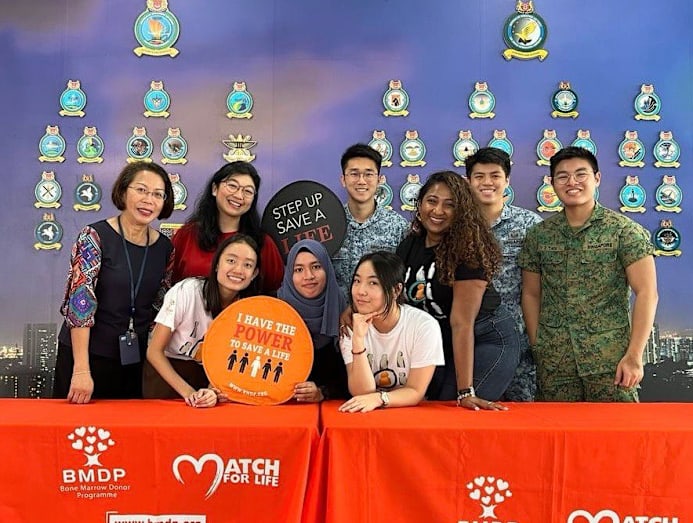
Chandini has coordinated 10 to 20 such meet-ups, and that is when the full impact of her work hits her.
“Prior to the meet-up, the donors and recipients don’t know each other because of patient-donor confidentiality. But a lot of times, when they finally meet, they feel a connection. Some feel like they’re blood sisters, some have even said, ‘His blood is running through me’. It’s so heartwarming,” she smiled.
“Blood disease can strike anyone. Our youngest patient was four months old,” Chandini said.
Not all patients find a match. Out of 400 to 500 requests BMDP receives from Singapore hospitals each year, 13 per cent or less result in successful transplants, she added.
Having more donors increases the chances of patients finding a match and surviving their illness, she said.
This resonates deeply with Chandini because as a child, she watched her beloved father struggle with diabetes and heart issues, and cycle in and out of hospital and the intensive care unit each year.
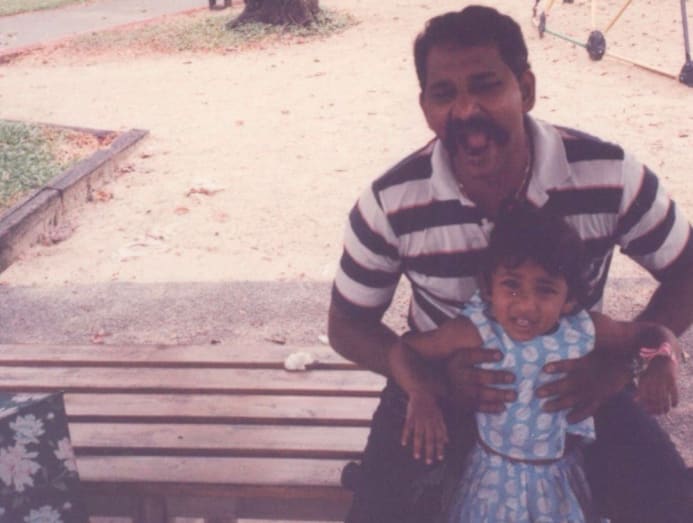
“I understand how the patient’s family feel and the anxiety of losing someone they love. Throughout my life, I lived with that kind of fear. And every time (we got my dad back), the sense of relief and appreciation is unmatched,” she said.
Her father eventually died in 2023 at the age of 70 after bypass surgery, but he continues to inspire her to help others struggling with critical illnesses.
Besides dedicating 10 years of her career to helping transplant patients at BMDP, Chandini also registered as a donor in 2016. She urges more people to register as donors as well.
Every person who registers makes a difference, she said. “You are the reason someone will have a second chance at life.”
CNA Women is a section on CNA Lifestyle that seeks to inform, empower and inspire the modern woman. If you have women-related news, issues and ideas to share with us, email CNAWomen [at] mediacorp.com.sg (CNAWomen[at]mediacorp[dot]com[dot]sg).






